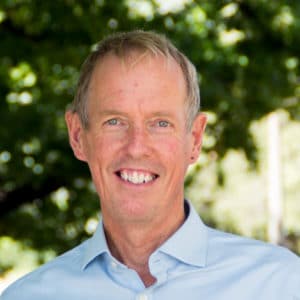Dates
November 2020 saw the RSA’s first globetrotting event series called RSA Global. The programme brought together the regional studies and science communities from around the world for three hour programmes organised by and for the RSA’s global networks. The online format allowed us to meet and discuss latest research and policy developments in times when we cannot travel.
Traveling with the sun, we started on 2nd November in Australasia with a plenary and panel on the future of tourism and a training session on fieldwork in times when regions are in lockdown. The programme was organised by our Australia Ambassador Melissa Nursey-Bray, the University of Adelaide and Ambassador to New Zealand Paul Dalziel, Lincoln University.
3rd November was all about China with a plenary on electronics and global production networks and panel on the Belt and Road initiative. The third session was a professional development session focussed on publishing in international journals. The programme was kindly developed in cooperation with the RSA’s China Division and was led by the Division’s Chair Weidong Lui, Chinese Academy of Sciences.
On Friday 6th November, we travelled on to Russia where we ran a paper session highlighting diversity and inequality in urban and regional development. The session was part of the Annual Conference on Inequality and Diversity of the St Petersburg School of Social Sciences and Area Studies of the National Research University “Higher School of Economics” and was organised in cooperation with the RSA’s Russia Division and led by the Division’s Chair Leonid Limonov, Leontief Centre and NRU HSE-St Petersburg.
Europe was the destination of RSA Global on Monday 9th November with a plenary on places that don’t matter and their policy implications, a panel on place-based leadership and a second panel on the role of universities in innovation and regional development. The programme was developed in cooperation with the RSA’s Ambassador to Norway Marte C.W. Solheim, University of Stavanger, Norway.
Traveling on, we reached Africa which marked the first RSA event ever on the continent. Sessions were developed and delivered by our ambassadors in Egypt (Yehya Serag and Abeer Elshater, Ain Shams University), Nigeria (Oladayo Ramon Ibrahim, Lagos State Polytechnic and Lookman Oshodi, International Development and Urban Governance) and South Africa (Ivan Turok, Human Sciences Research Council) and panels addressed post-conflict reconstruction in North Africa and the Middle-East and planning, integration and security in Nigeria. The closing plenary addressed urbanisation, economic density and the pandemic.
On Friday 13th November, we arrived in Latin America for a plenary on urbanization in the Global South, a panel on local economic development in Latin America and a professional development session on academic publishing. The programme was developed and led by the outgoing Chair of the RSA’s Latin America Division Sergio Montero, Universidad de Los Andes, Colombia.
Coming full circle and feeling slightly sad, we reached the end of our around the world trip on Monday 16th November in North America. The programme featured a plenary and panel with the overarching theme on migration and a professional development session on how to communicate research to policymakers. The programme was developed in partnership with Michael R. Glass, University of Pittsburgh.
This has been a very exciting virtual journey around the world and we would like to take this opportunity to thank our territorial representatives who worked with us on RSA Global, all speakers, chairs, supporters and all participants for making this series possible. Thank you!
Reports of each programme will be published in the RSA’s eZine Regions.
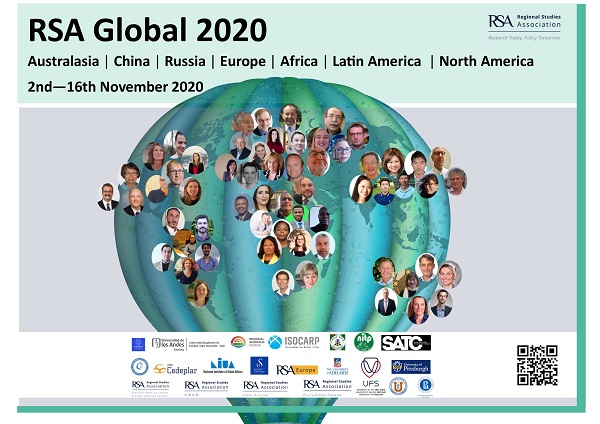
Australasia – Monday 02.11.2020
The Australasia sessions are organised by Paul Dalziel (RSA Ambassador New Zealand) and Melissa Nursey-Bray (RSA Ambassador Australia).
Speaker: Susanne Becken (Griffith University, Australia and Department of Conservation, New Zealand)
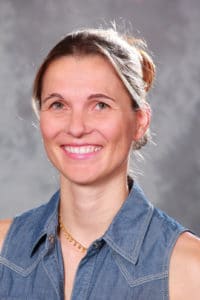
Susanne Becken is a Professor of Sustainable Tourism at Griffith University in Australia and the Principal Science Investment Advisor (Visitor) in the Department of Conservation, New Zealand. She is also a Vice Chancellor Research Fellow at the University of Surrey in the United Kingdom and was the founding Director of the Griffith Institute for Tourism. She has published over 100 articles on sustainable tourism, climate change and tourism resource use. Susanne is a member of the Air New Zealand Sustainability Advisory Panel, and sits on the Advisory Boards of My Green Butler, NOW Transforming Travel, and the Whitsunday Climate Change Innovation Hub. Susanne is a Fellow of the International Academy of the Study of Tourism and the 2019 UNWTO Ulysses Award winner.
Chair: Kim Houghton (Regional Australia Institute, Australia)
Dr Kim Houghton is Chief Economist at the Regional Australia Institute. Kim manages the Institute’s policy and research portfolio to ensure that the work has practical application and supports a better policy environment and more vibrant regional economies. Kim has played a leading role in recent research on population mobility in regional Australia, analysis of regional labour markets, and the impact of COVID-19 restrictions on regional economies.
Kim has worked on regional economic development in Australia and internationally for over 20 years. Before joining the Institute Kim ran a consulting businesses specialising in local economic and small business development. Through this work Kim developed a passion for engaging, motivating, informing and connecting entrepreneurial business owners.
Speakers:
Sarah Gardiner (Griffith University, Australia)
 Sarah Gardiner has a PhD in Marketing and is the Deputy Director of the Griffith Institute for Tourism at Griffith University, Queensland, Australia. Her research is published in leading tourism academic journals and she has written several book chapters on the topics of travel consumer behavior, future travel trends and technology, experience design and innovation. She regularly delivers presentations, consultancies and training for government and industry in these areas and is often asked to provide expert comment to media on tourism issues. She has a particular interest in youth and adventure tourism.
Sarah Gardiner has a PhD in Marketing and is the Deputy Director of the Griffith Institute for Tourism at Griffith University, Queensland, Australia. Her research is published in leading tourism academic journals and she has written several book chapters on the topics of travel consumer behavior, future travel trends and technology, experience design and innovation. She regularly delivers presentations, consultancies and training for government and industry in these areas and is often asked to provide expert comment to media on tourism issues. She has a particular interest in youth and adventure tourism.
Nick Jones (South Australian Tourism Commission, Australia)
 Nick Jones joined the South Australian Tourism Commission (SATC) in 2008 and is the Executive Director of the Destination Development group, which has the key focus of driving the supply side of the South Australian tourism industry.
Nick Jones joined the South Australian Tourism Commission (SATC) in 2008 and is the Executive Director of the Destination Development group, which has the key focus of driving the supply side of the South Australian tourism industry.
Nick has played a key role in increasing the accessibility to South Australia, attracting new hotel and infrastructure development, and regional tourism development. He has overseen the negotiation and introduction of direct international flights from Emirates, Qatar Airways and China Southern Airlines and the development of the six South Australian touring routes.
He has been actively involved in attracting new hotels and infrastructure to and within South Australia. Nick has also overseen Cruise visitation growth to South Australia surpass the Tourism Plan 2020 goal three years early and welcomed some of the largest, newest vessels to our state.
Nick also led the ‘Understanding China’ project which aimed to ensure the visitor economy was better equipped to understand the growing Chinese market. He is also a member of the ‘Regional Visitor Strategy 2025 Steering Committee’.
More recently Nick has worked closely with the South Australian tourism sector to meet the challenges COVID-19 has presented via the ‘Resilience and Rebound’ initiative, which provided business support to the sector and tools to prosper post COVID-19.
Nick joined the SATC after a number of years in consumer and trade marketing, sales and management roles with Publishing and Broadcasting Limited, at the time, the owners of Channel Nine Network and Australian Consolidated Press.
Chair: Rory Hill (Lincoln University, New Zealand)
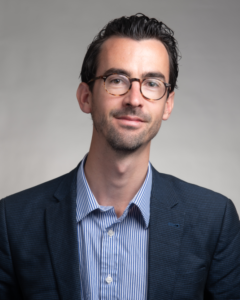 Rory Hill is a Postdoctoral Fellow at Lincoln University’s Centre of Excellence for Sustainable Tourism. His research explores sense of place, terroir, sustainability, business and tourism in New Zealand’s emerging wine regions. Graduating with a doctorate from the University of Oxford in 2016, Rory has published on wine, food, farming and tourism, and is currently preparing a book for publication under the title ‘The Storied Soil: Uncovering the Logic and Rhetoric of Terroir’.
Rory Hill is a Postdoctoral Fellow at Lincoln University’s Centre of Excellence for Sustainable Tourism. His research explores sense of place, terroir, sustainability, business and tourism in New Zealand’s emerging wine regions. Graduating with a doctorate from the University of Oxford in 2016, Rory has published on wine, food, farming and tourism, and is currently preparing a book for publication under the title ‘The Storied Soil: Uncovering the Logic and Rhetoric of Terroir’.
Due to Covid-19, researchers of various fields find themselves in a position where their on-going or future research is affected by closed regions, due to the pandemic. In this session, Melissa will illustrate how to ameliorate the current situation and enabling you to continue doing your fieldwork research, despite the fact that some regions might be closed.
Speaker: Melissa Nursey-Bray (University of Adelaide, Australia)
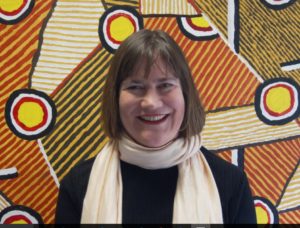
Melissa Nursey-Bray is currently Head of Department in Geography, Environment and Population (GEP), and the Coordinator of the GEP Masters Dissertation Program. She also teaches the research methods, sustainable cities, urbanization, community engagement and EIA subjects within it as well as undergraduates subjects in ethics, Indigenous resource management, coastal management and EIA. She is the Convener of the Adaptation, Community and Environment Research Group (ACE), a member of the Fay Gale Centre for Gender Research and of the Centre for Housing Regional and Urban Studies Program (CHURP). She is currently co-theme leader of the Indigenous Theme for the Social and Institutional National Climate Change Adaptation Research Network, Chair of the REDMAP Community Advisory Committee, and an Honorary Tyndall Fellow (2009). Melissa’s research interest is the examination of how communities or communities of interest become involved in decision making. In this context she has worked in the areas of Indigenous resource management, fisheries and urban governance. She is currently working on climate change adaptation projects in local government, Indigenous and fisheries communities.
Melissa believes in teaching for and about environmental sustainability: in 2009 she won a national teaching award for making an outstanding contribution to student learning in the area of critical thinking and environmental sustainability.
Melissa obtained her PhD from James Cook University, and now has over 60 publications including 2 books, and many chapters and articles on climate change and Indigenous resource management respectively.
Chair: Paul Dalziel (Lincoln University, New Zealand)
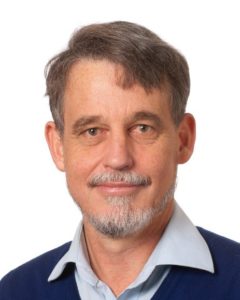 Paul Dalziel is Professor of Economics and Deputy Director of the Agribusiness and Economics Research Unit at Lincoln University, New Zealand. His research focuses on economic and social policy, with an emphasis on regional economic development. He is a Fellow of the Regional Studies Association and is the current RSA Ambassador for New Zealand. He has authored or edited 11 books, and written 105 refereed chapters and articles. His latest book is Wellbeing Economics: The Capabilities Approach to Prosperity, published in September 2018 as an Open Access Pivot by Palgrave Macmillan.
Paul Dalziel is Professor of Economics and Deputy Director of the Agribusiness and Economics Research Unit at Lincoln University, New Zealand. His research focuses on economic and social policy, with an emphasis on regional economic development. He is a Fellow of the Regional Studies Association and is the current RSA Ambassador for New Zealand. He has authored or edited 11 books, and written 105 refereed chapters and articles. His latest book is Wellbeing Economics: The Capabilities Approach to Prosperity, published in September 2018 as an Open Access Pivot by Palgrave Macmillan.
China – Tuesday 03.11.2020
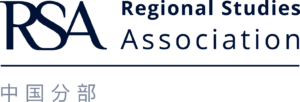
The sessions for China will run during the following times:
| Time Zone | Time | UTC +/- |
| China Standard Time (CST) | 16.00 – 19.00 | UTC +8 |
| Singapore Time (SGT) | 16.00 – 19.00 | UTC +8 |
| Greenwich Mean Time (GMT) | 08.00 – 11.00 | UTC +0 |
All sessions will run consecutively and you are welcome to stay as long or short as you wish. You will only need to register for free once and can drop in and out of the sessions.
Learn more about the RSA China Division: http://www.rsachina.org/, https://www.regionalstudies.org/network/china/
The session is organised by Weidong Liu (RSA China Division Chair)
Speaker: Professor Henry Wai-chung Yeung, National University of Singapore, Singapore
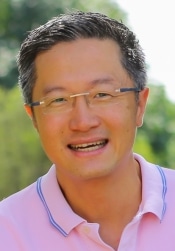
Henry Wai-chung Yeung is Distinguished Professor at the Department of Geography, National University of Singapore, Co-Director of the Global Production Networks Centre (GPN@NUS), and Director of the JY Pillay Comparative Asia Research Centre in the NUS Global Asia Institute. He is Principal Investigator of a US$4 million strategic grant awarded by the National University of Singapore to establish the GPN@NUS Centre. He is a leading social scientist specializing in theories and the geography of transnational corporations, global production networks and global value chains, East Asian firms and developmental states in the global economy.
Professor Yeung received his BA (First Class) from NUS in 1992 and PhD from the University of Manchester in 1995. He was a recipient of the NUS Outstanding University Researcher Award (1998), Outstanding Researcher Award (2008), and University Research Recognition Award (2018). In December 2017, he was selected by the American Association of Geographers in the United States to receive the AAG Distinguished Scholarship Honors for 2018 “in recognition of his extraordinary scholarship and leadership in the discipline”. Earlier in June 2017, he was conferred the Royal Geographical Society (with IBG) Murchison Award 2017 for “pioneering publications in the field of globalisation”. Professor Yeung has published six authored books, seven edited books, and over 100 journal papers and 50 book chapters across the fields of human geography, urban and regional studies, Asian studies, international business, and political economy. His recent monographs are Strategic Coupling: East Asian Industrial Transformation in the New Global Economy (Cornell Studies in Political Economy Series, Cornell University Press, Ithaca, May 2016) and Global Production Networks: Theorizing Economic Development in an Interconnected World (with Neil Coe, Oxford University Press, Oxford, April 2015). His research has achieved very high impact in the social sciences. The ISI Web of Science database shows that he has 12 journal papers each receiving over 100 citations and his accumulated work has been cited at least 5,100 times in over 3,900 publications (excluding own work) as of January 2020, generating an h-index of at least 34. His citations on Google Scholar have exceeded 19,000. He is Editor of two top journals in Geography since 2001 – Environment and Planning A and Economic Geography and Past Editor of Review of International Political Economy (2004-2013), and serves on the editorial boards of 20 other international journals, including Global Networks, Journal of Economic Geography, and Journal of International Business Studies.
Discussant: Dr. Karen Lai, Durham University, UK

Karen Lai is Associate Professor/Reader at the Department of Geography, Durham University. Her research interests include geographies of money and finance, global cities, FinTech, service sectors and market formation, focusing particularly on issues of financialisation, knowledge networks and financial centre development. Her recent projects examine everyday financialisation through the knowledge networks of financial advisors and consumers, and the global financial networks of investment banks and law firms in Asia. She is currently working on FinTech to examine the changing relationships between financial institutions and technology firms, and impacts on the development of financial centres. She serves on the Executive Committees of the Global Network on Financial Geography (FinGeo) and the Economic Geography Research Group of the Royal Geographical Society (with Institute of British Geographers). She is also on the journal editorial boards of Geoforum and Geography Compass (Economic section).
Chair: Dr. Tom Kemeny, Queen Mary University of London, UK
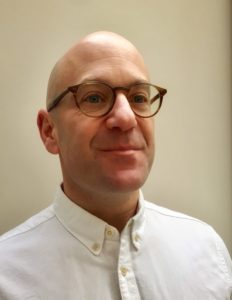
Dr. Tom Kemeny is a social scientist who studies the determinants of economic well-being in cities. He is currently an Associate Professor in Economic Development at Queen Mary, University of London, and a Visiting Fellow at the London School of Economics’ International Inequalities Institute. Tom’s prize-winning research is focused on cities and the deep determinants of uneven development. His recent work considers the role of technological change in shaping spatial and interpersonal inequality. He was awarded the Understanding Society Paper Prize in 2019 for his study of Brexit and internal migration. For his work on local social networks, he won the 2016 Urban Land Institute Prize, awarded for the best paper published in the Journal of Economic Geography. In 2015, his book, The Rise and Fall of Urban Economies: Lessons from San Francisco and Los Angeles, was published by Stanford University Press. Tom is currently an Associate Editor at Regional Studies; and serves on the Editorial Board of the Journal of Economic Geography. Cutting across his academic interests, he is interested in policy efforts to stimulate prosperity, and has advised governments and NGOs including the OECD, the U.S. Economic Development Administration, and the World Bank. Dr. Tom Kemeny is a social scientist who studies the determinants of economic well-being in cities. He is currently an Associate Professor in Economic Development at Queen Mary, University of London, and a Visiting Fellow at the London School of Economics’ International Inequalities Institute. Tom’s prize-winning research is focused on cities and the deep determinants of uneven development. His recent work considers the role of technological change in shaping spatial and interpersonal inequality. He was awarded the Understanding Society Paper Prize in 2019 for his study of Brexit and internal migration. For his work on local social networks, he won the 2016 Urban Land Institute Prize, awarded for the best paper published in the Journal of Economic Geography. In 2015, his book, The Rise and Fall of Urban Economies: Lessons from San Francisco and Los Angeles, was published by Stanford University Press. Tom is currently an Associate Editor at Regional Studies; and serves on the Editorial Board of the Journal of Economic Geography. Cutting across his academic interests, he is interested in policy efforts to stimulate prosperity, and has advised governments and NGOs including the OECD, the U.S. Economic Development Administration, and the World Bank.
Speakers:
Dr. Xiao Han, The University of Melbourne, Australia

Xiao’s research interest includes China’s rural changes, the Chinese ‘go-out’, the technopolitics of (water) infrastructure and the political economy of development. She is working as a team member to investigate the nature and impacts of the restructuring of China’s agriculture and rural society.
She works with Professor Christine Wong, Dr Sarah Rogers, Dr Brooke Wilmsen, and Dr Zoe Wang to examine the (re)configurations of and relations between land, labour, and capital in China’s agricultural sector. Xiao coordinates the project’s survey design with key partners from China Agricultural University, Xi’an Jiaotong University, Yunnan University and the China Three Gorges University.
Xiao’s PhD project investigated the goals, practices and consequences of Chinese overseas dam building, with a focus on Ghana.
Dr. Chih Yuan Woon, National University of Singapore, Singapore
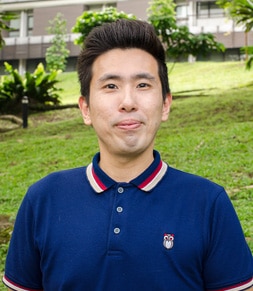
Chih Yuan WOON is Associate Professor of Geography at the National University of Singapore. He is a political geographer who has research interests in critical geopolitics, postcolonial geographies and issues to do with peace, nonviolence and security. Currently, he is examining the geopolitical and geoeconomic implications of China’s ‘rise’, contextualizing such debates through the ‘Belt and Road Initiative’ as well as China’s ongoing interest and interventions in the Polar regions. He is the co-editor of Territory, Politics, Governance and the RGS-IBG Book Series and sits on the editorial boards of Environment and Planning C: Politics and Space, Geography Compass and The Singapore Journal of Tropical Geography.
Professor Xiangming Chen, Centre for Urban and Global Studies, Trinity College, USA
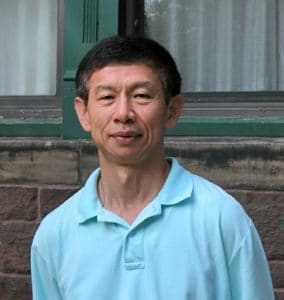
Xiangming Chen is the founding Dean and director of the Center for Urban and Global Studies, Trinity College and the Paul E. Raether Distinguished Professor of Global Urban Studies and Sociology, as well as a distinguished guest professor at Fudan University in Shanghai. He received his B.A. from Beijing Foreign Studies University and his Ph.D. in sociology from Duke University. He is a co-author, with Anthony Orum, of The World of Cities: Places in Comparative and Historical Perspective (Blackwell, 2003); the author of As Borders Bend: Transnational Spaces on the Pacific Rim (Rowman and Littlefield, 2005); the editor of and primary contributor to Shanghai Rising: State Power and Local Transformations in a Global Megacity (University of Minnesota Press, 2009); the lead editor, with Ahmed Kanna, of Rethinking Global Urbanism: Comparative Insights from Secondary Cities (Routledge, 2012); a co-author, with Anthony Orum and Krista Paulsen, of Introduction to Cities: How Place and Space Shape Human Experience(Wiley-Blackwell, 2012); the lead editor, with Nick Bacon, of Confronting Urban Legacy: Rediscovering Hartford and New England’s Forgotten Cities (Lexington Books, 2013); and a co-editor, with Sharon Zukin and Philip Kasinitz, of Global Cities, Local Streets (Routledge, forthcoming).
Chair: Dr. Han Cheng, Institute of Geographical Sciences and National Resources Research, Chinese Academy of Sciences, China
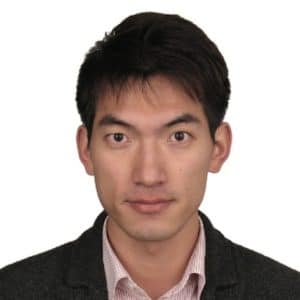
Han is a research associate at the Institute of Geographical Sciences and Natural Resources Research, Chinese Academy of Sciences. He works on geopolitics, economic diplomacy, and international development, with a particular focus on the Belt and Road Initiative and China-Africa relations. Han received his PhD in Geography from the University of Cambridge, where he received a Cambridge Trust International Scholarship and a RGS-IBG Psotgraduate Research Award. Prior to PhD, he worked with international think tanks on sustainable development in China, India and South Africa, and was a visiting fellow at Yale University’s MacMillan Center for International and Area Studies.
The aim of this session is to outline the main issues involved in writing and publishing an academic article: it will deal with how to choose a journal, how to prepare a manuscript, how to submit, how articles are referred and how to handle referee reports. Attention will also be paid to language and presentational issues that arise for when seeking to publish in a language other than one’s mother tongue. A significant part of the session will be devoted to dealing with questions posed by participants.
Speaker: Professor Michael Dunford, Chinese Academy of Sciences, China & University of Sussex, UK
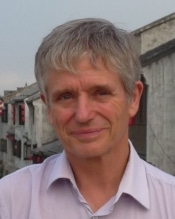
Michael Dunford is a CAS Senior International Scientist, Institute of Geographical Sciences and Natural Resources Research, Chinese Academy of Sciences and Emeritus Professor, School of Global Studies, University of Sussex. An expert in economic geography and urban and regional analysis, his research deals with growth, inequality and social cohesion; economic reconstruction; industrial development (including global value chains); regional differentiation and urbanization in China, global convergence and theories of regulation. His research includes numerous projects funded by the European Union, UK Economic and Social Research Council and the Leverhulme Trust. Since 2006 he has participated in a number of projects in China including and EU-China regional policy dialogue and three projects with the Chinese state Council Leading group on Poverty Alleviation and Development. The results of this research are published in nearly 200 journal articles and book chapters and 10 books and monographs. He is author/co-author of The arena of capital (1983), Capital, the state and regional development (1988), Rhône-Alpes in the 1990s (1991), Successful European regions: Northern Ireland learning from others (1996) and After the three Italies (2006) and co-editor of Industrial change and regional development (1991), Cities and regions in the new Europe (1992) and The geographical transformation of China (2015). In 2000 he was elected to the Academy of Social Sciences (AcSS); he was elected an Honorary Member of the Società Geografica Italiana; in 2003 he received the Royal Geographical Society Award for Geographical Research in Europe. In 1996-2002 he was Honorary Editor of Regional Studies, is a member of a number of Editorial Advisory Boards and is a founding Editor of a new journal, Area Development and Policy.
Chair: Mia Bennett, University of Hong Kong, Hong Kong, China

Mia Bennett is an assistant professor in the Geography Department and School of Modern Languages & Cultures (China Studies Programme) at the University of Hong Kong. As a political geographer with geospatial skills, through fieldwork and remote sensing, she researches the geopolitics of development in northern frontiers, namely the Arctic, Russian Far East, and along the more remote corridors of China’s Belt and Road Initiative. Mia received a PhD in Geography from UCLA, where she was a National Science Foundation Graduate Research Fellow, and an MPhil in Polar Studies from the University of Cambridge, where she was a Gates Scholar. She has published extensively in peer-reviewed journals and popular publications and edits a long-running blog on the Arctic at cryopolitics.com.
India – delayed until 2021
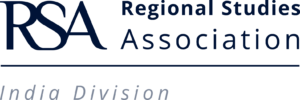
Please note that due to unforeseen circumstances, this session will be delayed to 2021 and we will publish a new date once this is available.
Russia – Friday 06.11.2020
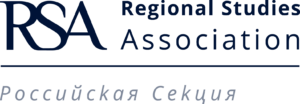
| Time Zone | Time | UTC +/- |
| Moscow Standard Time (MSK) | 12.35 – 14.30 | UTC +3 |
| Eastern European Time (EET) | 11.35 – 13.30 | UTC +2 |
| Samara Time (SAMT) | 13.35 – 15.30 | UTC +4 |
| Yekaterinburg Time (YEKT) | 14.35 – 16.30 | UTC +5 |
| Omsk Standard Time (OMSK) | 15.35 – 17.30 | UTC +6 |
| Krasnoyarsk Time (KRST) | 16.35 – 18.30 | UTC +7 |
| Novosibirsk Time (NOVT) | 16.35 – 18.30 | UTC +7 |
| Irkutsk Time (IRKT) | 17.35 – 19.30 | UTC +8 |
| Yakutsk Time (YAKT) | 18.35 – 20.30 | UTC +9 |
| Vladivostok (VLAT) | 19.35 – 21.30 | UTC +10 |
| Magadan Time (MAGT) | 20.35 – 22.30 | UTC +11 |
| Sakhalin Time (SAKT) | 20.35 – 22.30 | UTC +11 |
| Srednekolymsk Time (SRET) | 20.35 – 22.30 | UTC +11 |
| Anadyr Time (ANAT) | 21.35 – 23.30 | UTC +12 |
| Kamchatka Time (PETT) | 21.35 – 23.30 | UTC +12 |
| Greenwich Mean Time (GMT) | 09.35 – 11.30 | UTC +0 |
This RSA Global Russia Session organized by Russian Division of the RSA in a framework of a bigger event – Annual Conference on Inequality and Diversity of St Petersburg School of Social Sciences and Area Studies of the National Research University “Higher School of Economics”, which will take 3 days (November 5 – 7) and have several parallel tracks (thematic directions) – see https://spb.hse.ru/en/idc/#about
Click here for the full programme of Annual Conference on Inequality and Diversity of St Petersburg School of Social Sciences and Area Studies of the National Research University “Higher School of Economics
The Session will focus on issues of inequalities in urban/regional development, inter-regional cooperation, residential and school segregation in city-regions, sources of resilience and its actors in non-core areas, place-based policies for sustainability and prosperity, urban-rural conflicts in planning of mega-events and other topics. Participants and speakers will represent not only Russia, but also the UK, Italy and Germany, though most of empirical results and cases will be about different cities/regions of Russia.
Other sessions of this panel (beyond the RSA Global) will deal with issues of the influence of corona-crisis on Russian cities/regions, digital divide, urbanization and income inequality, ethno-demographic diversity and its impact on regional performance, fiscal resilience of Russia’s regions and soft budget constraint in a Federation, housing rent policies, resilience of Russian Arctic cities, industrial clusters, science and technology parks and mono-industry towns.
The Russia session is organised by Leonid Liminov (RSA Russia Division Chair)
Session details:
Chair: Leonid Limonov, Higher School of Economics, ICSER, Leontief Centre, Russia
Discussant: Denis Ivanov, Higher School of Economics, Russia
Opening and welcome: Daniela Carl, Regional Studies Association, UK
Inter-regional Cooperation in Russia as a Factor for Reducing Inequality, Vladimir Klimanov, RANEPA, Russia
Residential and School Segregation in European Cities, Carolina Pacchi, Politecnico di Milano, Italy
Conceptualising Agency of Change in Non-core Regions, Nadir Kinossian, Leibniz-Insitut für Länderkunde (IfL), Germany
Reflections on ‘Urban Regeneration’ in Russia, Maria Gunko, Institute of Geography, RAS, Russia
Career Trajectories of Regional Officials: Russia and China before and after 2012, Andrey Yakovlev, Higher School of Economics, Russia
Planning Mega-events in Diverse Macro-region: The Urban-rural Conflicts of the Italian Olympic Games, Elena Batunova & Stefano Di Vita, Politecnico di Milano, Italy
Closing: Leonid Limonov, Higher School of Economics | ICSER “Leontief Centre”, Russia
Europe – Monday 09.11.2020
The sessions for Europe will run during the following times:
| Time Zone | Time | UTC +/- |
| Central European Time (CET) | 13.00 – 16.00 | UTC +1 |
| Eastern European Time (EET) | 14.00 – 17.00 | UTC +2 |
| Greenwich Mean Time (GMT) | 12.00 – 15.00 | UTC +0 |
All sessions will run consecutively and you are welcome to stay as long or short as you wish. You will only need to register for free once and can drop in and out of the sessions.
These sessions are organised by Marte Solheim (RSA Ambassador Norway) Markku Sotarauta (RSA Ambassador Finland and Rune Dahl Fitjar (University of Stavanger)
Speaker: Andrés Rodríguez-Pose, London School of Economics, UK
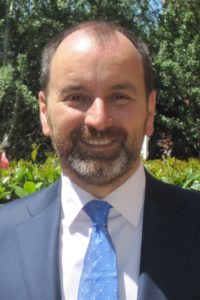
Andrés Rodríguez-Pose is a Professor of Economic Geography at the London School of Economics and a part-time Professor of Innovation at the University of Stavanger (Norway). He is past-President of the Regional Science Association International (RSAI). He is a regular advisor to many international organisations, including the European Commission, the World Bank and numerous UN agencies. He was awarded the 2018 ERSA Prize in Regional Science and has been a holder of a European Research Council (ERC) Advanced Grant and of a Royal Society-Wolfson Research Merit Award. In 2019 he received Doctorates Honoris Causa from Utrecht University (the Netherlands) and Jönköping University (Sweden). He is an editor of Economic Geography, and sits on the editorial board of 33 other scholarly journals.
Chair: Marte Solheim, University of Stavanger, Norway
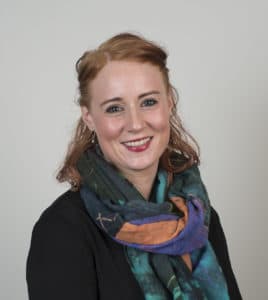
Marte C.W. Solheim is Associate Professor and Head of the Stavanger Centre for Innovation Research, at the University of Stavanger Business School, Norway.
Solheim carries out research on diversity and innovation, combining insights from organizational theory, innovation studies and regional studies. She is particularly interested in understanding how innovation is inspired when a variety of diverse knowledge intersect, and the contextual factors affecting this association.
Solheim is actively engaged in the public debate on migration, diversity and inclusion and innovation-related issues in Norway, and is invited to speak at national diversity conferences, as well as to national policy makers, political spheres and other institutions.
Solheim regularly provides lectures to the Certification in Diversity Management at the National Centre of Diversity Management as well as acts as expert advisor on diversity and integration projects.
Solheim is Regional Studies Association Ambassador to Norway, member of the prestigious Academy of Young Researchers in Norway, on the steering committee of the Smart City Research Network at the University of Stavanger,
on the board of Regional Research Funds, RFF Rogaland to mention some.
People – individuals, households and communities – are once again emerging as a focus within local and regional development studies, not only as units that underpin aggregate measures or elements in systems but as deliberative actors with ambitions, desires, strategies and objectives. Consequently, the notion of place leadership with its many names has attracted increasing interest in scholarly communities. Research on place leadership has the potential to shed light not only on leadership in cities and regions or processes of it or its significance but also on many classic as well as emerging sub-national development issues. It focuses our attention on movement, influence, people and their relationships by linking agency and context to each other within the framework of rural, city and regional development.
Despite many empirical insights and emerging, still embryonic, theorising research on place leadership is still in its infancy. It is somewhat surprising that no theory of place of leadership in the city and regional development has yet surfaced given the fact that there is a long tradition of studying all sorts of sub-national development processes as well as the leadership of nations and organisation. Whatever we think about individual leasers and their capacity to lead, we know all too well that leadership is a real phenomenon and worth exploring in more depth.
This webinar discusses the next step in a place leadership study. There is still much to do to develop both theory and methodology as well as to expand the scope beyond Anglo-American, Australian and European democratic countries. Moreover, the examination of the leadership of cities and regions will not be complete until it has heard other voices too – those of women, minority groups, younger people and those living with a disability. The leadership of these actors – and their contribution to the lives of many withing the community – is as significant as those of official leaders.
This webinar discusses how the study on place leadership has evolved and what are the avenues for the future.
Speaker: Markku Sotarauta, Tampere University, Finland

Markku Sotarauta is professor of regional development studies in Faculty of Management and Business at Tampere University, Finland. In 2011-2013, he served as the founding Dean of the School of Management and, in 2009-2010, as the last Dean of the Faculty of Economics and Administration.
Professor Sotarauta specialises in leadership, institutional entrepreneurship, and innovation systems in city and regional development. He has published widely on these issues in international journals and edited books. His latest publications include ‘Leadership and the city: Power, strategy and networks in the making of knowledge cities‘, published by Routledge.
Professor Sotarauta is also an author of Every place matters: towards effective place-based policy (2020). The book is part of the RSA’s Regional Studies Policy Impact Book Series and was funded by an RSA Policy Expo Grant.
Professor Sotarauta has worked with the Finnish Parliament, many Finnish ministries as well as cities and regions both in Finland and in other countries. He serves OP Financial Group as the Vice-Chairman of the Supervisory Council, and Tampere District Co-operative Bank (OP Tampere) as the Chairman of Board of Directors
Markku Sotarauta is the Chairman of the Board of the NORSA: Nordic Section of the Regional Studies Association Division of the RSA. See the NORSA: Nordic Section of the Regional Studies Association Divisions page for more information and for details of upcoming and recent events.
Presentation title: Place, City, Region, Rural … Leadership: A Literature Review of Work done and Ideas for the Future
Speaker: John Gibney, University of Birmingham, UK
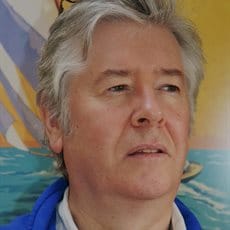
John Gibney joined the University of Birmingham following an influential career in city, regional and cross-border economic development in Europe. He is now developing research, knowledge transfer and Undergraduate and Postgraduate teaching across Business Studies, Public Policy and City and Regional Development Studies.
He has developed and contributed to a number of research and consultancy projects for European, national and local clients. Projects have included the European Commission ACRE research project that explored the development dynamics of 13 creative and knowledge city-regions in Europe; research into the cross-border leadership and governance of economic development in Europe; and the RISE research project (Regional Integrated Strategies in Europe) – a study of integrated territorial development across 4 EU regions for the European Spatial Planning Observatory (ESPON). Informed by research, teaching and experience, John’s leadership related R&D work is making a distinctive contribution from Birmingham to debates about the nature and dynamics of leadership in city and regional economic development. John is also a Visiting Fellow at Northumbria University.
Speaker: Dr. Alyson Nicholds, Staffordshire Business School, UK
Alyson is interdisciplinary scholar of Public Policy, Leadership and Management Learning. She began her professional life in Healthcare Management (NHS and private sector) working in London and the South East, Midlands and North, before moving into Public Health and Community Regeneration as Development Officer for a Primary Care Trust (PCT) and Regional Umbrella Charity.
A late entrant into academia, Alyson’s research has always sought to garner different forms of evidence to problematise and evaluate ‘what works’ in public policy to tackle inequality. Doctoral and post-doctoral study has developed her expertise in the use of multi-discourse approaches (analysing the same problem from different perspectives) to understand how diversity in actors’ personal and professional values (expressed in language), generates preferences for implementing organisational process (through working practices) and how this shapes and constrains the outcomes of public policy (health, social care, urban, science and higher education) differently.
Chair: Ina Horlings, University of Groningen, The Netherlands
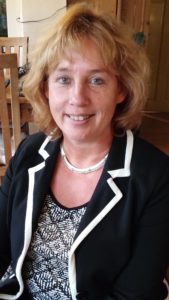
Lummina (Ina) Horlings is affiliated as Prof. Socio-Spatial planning at the University of Groningen in The Netherlands. She has an educational background in social geography and finalised a PhD in Policy Sciences.
Her research work broadly deals with place-based local/regional development and the ‘human factor’ in place-shaping, addressing questions such as how and why do collective civic initiatives take the lead in ‘making better places together’. Research topics are leadership, place-based development, sustainable place-shaping, resourceful communities, (cultural) sustainability, self-governance, values, coalitions, and place branding. Her focus recently shifted to adaptive citizens’ and community responses to climate change.
She is an active fellow within the RSA as member of the Research Committee. She was also involved in the RSA Research Network on ‘Leadership in Urban and Regional Development’.
Lummina Horlings participated in several INTERREG projects, co-coordinated the Marie Curie ITN program SUSPLACE (sustainable place-shaping) and is co-initiator/partner of the Marie Curie ITN project RECOMS (resourceful communities). She edited several books, on Passion (2009), Vital Coalitions (2010), Leadership (2012), and the role of Culture in Regional Development (2015), and has (co)authored peer-reviewed scientific articles in various journals. She participates in the academic board of the Platform Sustainable Society in Groningen, and is an editorial board member of the journals ‘Sustainability Science’ and ‘Sustainability’.
In the knowledge economy, regional policy-makers look to universities as a source of innovation and competitiveness. Meanwhile, universities face increasing pressures to demonstrate the societal impact of their activities, and often themselves have growing ambitions to contribute to their regions. In responding to these challenges, universities often go well beyond the traditional innovation pathways of commercialisation and collaboration with industry, to take on a broader set of roles which universities take in their regions. They need to be entrepreneurial in developing new ways of educating students at all levels, new ways of doing research, and new arenas for interacting with stakeholders. This panel discusses the various ways in which universities change in order to take a broader role in promoting innovation and development in their region: by reorienting doctoral training to prepare PhDs for working outside academia, by engaging in the development of regional innovation policy, and by interacting with citizens in living labs. These activities all require institutional and organisational adaptation by universities in interacting with new types of stakeholders. The presentations are based on research conducted as part of the EU Horizon 2020 Marie Skłodowska-Curie Actions Innovative Training Network on the Role of Universities in Innovation and Regional Development (RUNIN), which has trained 14 doctoral students across seven universities in Europe in the period 2017-2020.
Speaker: Eloïse Germain-Alamartine, CEA, France
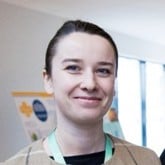
Eloïse Germain holds a PhD from Linköping University (Sweden). She participated in the Horizon 2020 project RUNIN (the Role of Universities in Innovation and Regional Development). Her research deals with PhD education, highly-skilled workers’ employability and the model of the entrepreneurial university. She has a background in IT-engineering and in business administration, and is currently working at CEA (France) as an administrative coordinator for two Horizon 2020 projects involving industrial partners, research institutes and universities on the development of innovative energy storage systems.
Presentation title: Doctoral Education in the Entrepreneurial University
Speaker: Liliana Fonseca, University of Strathclyde, UK & Universidade de Aveiro, Portugal
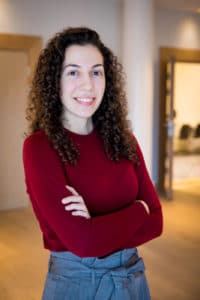
MSc Liliana Fonseca is a Research Assistant in the European Policies Research Centre, contributing to research on the Northern Arctic Periphery, the socio-economic impact of the COVID-19 crisis, and the energy transition in regions coming out of coal (TRACER). She is also a PhD candidate in Public Policies at the University of Aveiro (Portugal), as a part of the H2020 Marie Skłodowska-Curie Innovative Training Network RUNIN (The Role of Universities in Innovation and Regional Development). She studies the topic of universities’ engagement in regional innovation policy, having undertaken cross-regional comparative research on topics such as: developing academic drivers for collaborating with local and regional government; new organisational structures and dynamics in universities’ regional engagement; academic agency and place-based leadership; entrepreneurial regional innovation ecosystems; universities’ role in matching smart specialisation strategies to regional needs. She was awarded the IND+I Science 2017 prize in the category of Industry and Innovation for her paper on universities in innovation policy-design.
Presentation title: The Organisational Adaptation of Universities to Smart Specialisation: The Emergence of Strategic Network Interface Units
Speaker: Huong Nguyen, Universitat Autònoma de Barcelona, Spain
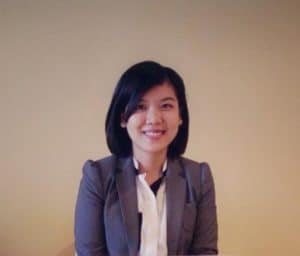
Huong Thu Nguyen is a PhD fellow in Economics, Management and Organisation (DEMO programme) at the Department of Business of the Autonomous University of Barcelona, Spain. Huong researches on the role of citizens and users in innovation and regional development through the Quadruple Helix partnerships that engage together with various actors from academia, government and industry. She got her master degree in Business Development and Internationalisation from Umeå University, Sweden. Before transferring to academia, Huong spent several years working as a senior tax consultant at PwC (Vietnam) Ltd.
Presentation title: Living Labs: Challenging and Changing the Smart City Organisational Field?
Speaker: Gerwin Evers, Technopolis Group, The Netherlands
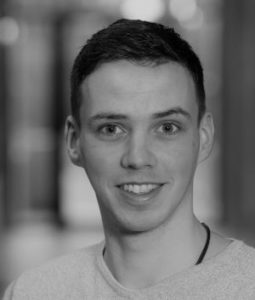
Gerwin Evers works as a consultant at Technopolis Group in Amsterdam. Gerwin focuses on the evaluation of science and innovation policy, in which he is specialised into health&life sciences and the role of universities in science and innovation policy. Gerwin takes a systemic perspective and tries to incorporate a wide range of quantitative methods (including relevant machine learning tools), while he also has experience with, and sees the (complementary) value of, qualitative methods such as interviews.
Prior to joining Technopolis Group, Gerwin was as PhD Fellow at Aalborg University part of the EU funded Marie-Curie Innovative Training Network that studied the Role of Universities in Regional Development and Innovation(RUNIN). Gerwin worked previously as a junior researcher at the Copernicus Institute of Utrecht University on a project that aimed to map the innovation system for rare diseases by employing a bibliometric analysis complemented with interviews and other qualitative methods.
Presentation title: What is the Role of University-industry Research Cllaborations and Graduate Production for the Impact of Universityies on Regional Industrial Development?
Chair: Rune Dahl Fitjar, University of Stavanger, Norway
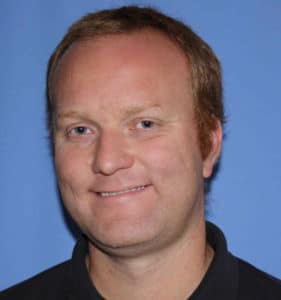
Rune Dahl Fitjar is a Professor in Innovation Studies at the UiS Business School, Centre for Innovation Research, and the Pro-Rector for Innovation and Society at the University of Stavanger, Norway. He has a PhD in Government from LSE (2007) and works in the intersection of regional studies, innovation studies, economic geography and political science. He coordinates the RUNIN network.
Africa – Wednesday 11.11.2020
More information on our Panel on Post-Conflict Reconstruction:
Panellists:
Hala Asslan (International Council of Monuments and Historic Sites in Syria)
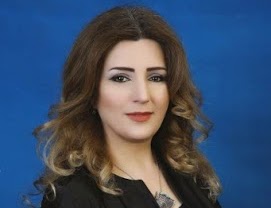
Hala Asslan has a Ph.D from Ecole Pratique des Hautes Etudes (EPHE), Sorbonne, France. She is a consultant for the International Council of Monuments and Historic Sites (ICOMOS), UNESCO, and many other international organizations since 2010. Her passion for the Syrian cultural heritage and her sympathy for the devastation during the crisis was motivated to contribute to its protection and safe-guarding through field work, rehabilitation projects, participation in several scientific conferences and workshops at local and regional conferences in Syria, Iraq, Egypt, Bahrain, Lebanon and finally in Poland. As a consultant, Dr. Asslan delivered several lectures since 2013 in the field of cultural heritage safe-guarding. She has a varied professional and academic experience in restoration and rehabilitation of historic buildings and sites in Syria, including World Heritage List sites such as Aleppo, Palmyra, Salah-Din Castle, Old Damascus and Jerusalem.
Presentation title: Post-war reconstruction strategies in Syrian historical cities
Nabil Menhem (Planner, urban designer and architect in Lebanon)
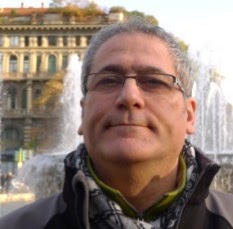
Dr. Nabil Menhem is an internationally experienced regional and metropolitan planner, urban designer and architect from Beirut. He has developed his career in both professional practices and academic activities. He has been involved in projects of various scales and contents specifically in contexts of post- conflicts and natural disasters recovery and reconstruction (Lebanon, Iraq and Sri Lanka). Having rich experiences in working with international organizations and donor agencies (World Bank, JICA, UNDP, UN-Habitat, EU, etc.), governmental bodies and local authorities, as well as the private sector, he took on the role of team leader, coordinator and key expert for many strategic regional development and planning projects in recent years. In 2001, Dr. MENHEM founded and led ‘flat s.a.l.’; an award winning international multidisciplinary design and planning consultancy dedicated for spatial and economic development, post-conflict and natural disaster recovery. The firm won in 2005 the international competition ‘Abitare a Milano/2’ Via Giambellino project in Italy (social housing project for Milan local Government) in addition to several international project commissions.
Presentation title: Planning Conundrum: Rebuilding Cities in a Perpetual Post-Conflict Scenario
Ashraf El Hassy (civil engineer in Libya)
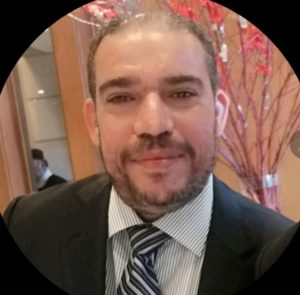 Ashraf El Hassy is a civil engineer and experienced Founder with a demonstrated history of working in the management consulting industry. He is skilled in Engineering, Strategic Planning, Businessowners, Culture Change, and Change Management. Strong business development professional with a Master of Engineering (Meng) in Project Management.
Ashraf El Hassy is a civil engineer and experienced Founder with a demonstrated history of working in the management consulting industry. He is skilled in Engineering, Strategic Planning, Businessowners, Culture Change, and Change Management. Strong business development professional with a Master of Engineering (Meng) in Project Management.
Presentation title: Reconstruction Challenges and Opportunities in Libya
Chairs:
Abeer Elshater (Ain Shams University, Cairo, Egypt)
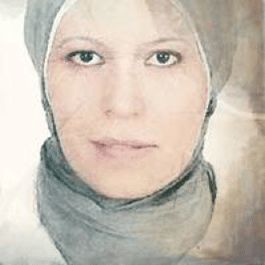 Abeer Elshater, PhD, is a professor of Urban Morphology at Faculty of Engineering, Ain Shams University, Cairo, Egypt, teaching and supervising multidisciplinary topics in the ideology of urban design. Her area of interest is in urban design discipline. She has worked on some international research projects with international universities. Elshater is an author and co-author of books by Partridge (UK), Springer (Germany) and IGI Global (USA) as well as a number of scientific manuscripts in international journals and conference proceedings. Abeer is also an ambassador of the Regional Studies Association, United Kingdom. Recently, she acts as consultant to the deputy minister of Higher Education and Scientific Research.
Abeer Elshater, PhD, is a professor of Urban Morphology at Faculty of Engineering, Ain Shams University, Cairo, Egypt, teaching and supervising multidisciplinary topics in the ideology of urban design. Her area of interest is in urban design discipline. She has worked on some international research projects with international universities. Elshater is an author and co-author of books by Partridge (UK), Springer (Germany) and IGI Global (USA) as well as a number of scientific manuscripts in international journals and conference proceedings. Abeer is also an ambassador of the Regional Studies Association, United Kingdom. Recently, she acts as consultant to the deputy minister of Higher Education and Scientific Research.
Yehya Serag (Ain Shams University, Cairo, Egypt)
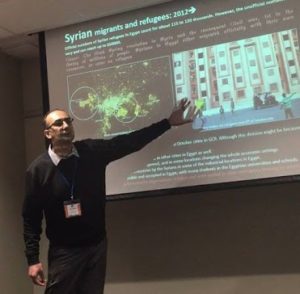 Yehya Serag is a professor of urban and regional planning in Ain Shams University in Cairo. He is also a regional and urban planning consultant with about 20 years of academic and professional experience. Since the beginning of the so called ” Arab Spring revolutions”, Prof. Serag has been interested in studying and analyzing the impacts of politics on urbanism and the built environment. Among his interests in this field: city transformation as a result of war or revolutions, urbicide: the deliberate destruction of cities and its causes, and post war/conflict reconstruction strategies. He academically worked with several students from Syria, Iraq, Egypt and Palestine in research topics related to the previous field. Professionally, Prof. Serag is a partner in the Engineering Consultant Office for Planning and Architecture, through which he was involved in the regional planning of one of the Egyptian border regions with Sudan, setting a proposal for regional development to the Darfur region in Sudan, as well as many strategic and structural city planning projects. He is also a member of the Regional Studies Association in the United Kingdom, as well as being one of its representatives in Egypt. Most recently Prof. Serag co-founded together with a group of consultant offices and individual consultants the “Alliance for Post-Conflict Reconstruction (APOCOR)”. The members of APOCOR are of different nationalities including Egypt, Lebanon, Iraq and Germany; and with different backgrounds and specializations including urban planning, Architecture, Remote Sensing, Civil Engineering and Finance. The group has adopted a methodology for post-conflict reconstruction and aims to apply it in actual project in the post-conflict cities of the Middle East. Prof. Yehya Serag is also a member at the Academic & Research Board of the Institute of Global Security & Defense Affairs (IGSDA).
Yehya Serag is a professor of urban and regional planning in Ain Shams University in Cairo. He is also a regional and urban planning consultant with about 20 years of academic and professional experience. Since the beginning of the so called ” Arab Spring revolutions”, Prof. Serag has been interested in studying and analyzing the impacts of politics on urbanism and the built environment. Among his interests in this field: city transformation as a result of war or revolutions, urbicide: the deliberate destruction of cities and its causes, and post war/conflict reconstruction strategies. He academically worked with several students from Syria, Iraq, Egypt and Palestine in research topics related to the previous field. Professionally, Prof. Serag is a partner in the Engineering Consultant Office for Planning and Architecture, through which he was involved in the regional planning of one of the Egyptian border regions with Sudan, setting a proposal for regional development to the Darfur region in Sudan, as well as many strategic and structural city planning projects. He is also a member of the Regional Studies Association in the United Kingdom, as well as being one of its representatives in Egypt. Most recently Prof. Serag co-founded together with a group of consultant offices and individual consultants the “Alliance for Post-Conflict Reconstruction (APOCOR)”. The members of APOCOR are of different nationalities including Egypt, Lebanon, Iraq and Germany; and with different backgrounds and specializations including urban planning, Architecture, Remote Sensing, Civil Engineering and Finance. The group has adopted a methodology for post-conflict reconstruction and aims to apply it in actual project in the post-conflict cities of the Middle East. Prof. Yehya Serag is also a member at the Academic & Research Board of the Institute of Global Security & Defense Affairs (IGSDA).
This session is organised by the RSA Egyptian Ambassadors Abeer Elshater and Yehya Serag.
A safe and secured environment is required for sustainable development to thrive in any region as indicated in the Sustainable Development Goal 11 of making cities and human settlements inclusive, safe, resilient and sustainable. In Nigeria, the security environment in different regions is fragile. The North-East region has in more than 10 years dealing with an insurgency, North-West and North-Central dealing with inter-tribal crisis and South-South trying to combat territorial gangs’ battles and crude oil-related crimes. Highway abductions and killings have forced the South-West region to establish its community-based security system otherwise known as Amotekun to operates alongside the Federal Police System. The panel will review the existing situation in different regions in Nigeria, suggest pathways to addressing security challenges and mechanism for integrating the emerging security architecture into the State’s and Federal structures.
Panellists:
Tpl. Toyin Ayinde (President, Nigerian Institute of Town Planners) – Welcome Remark
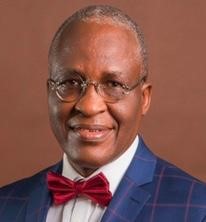 He is the Chairman, Tee-Ay-Ay Limited, a firm of Consulting Town Planners based in Lagos. He had served Lagos State Government as Honourable Commissioner, Physical Planning and Urban Development (2011-2015) and presently he is the National President of the Nigerian Institute of Town Planners (NITP). He has over 35 years of professional practice experience across public, private and academic sectors of the profession of Urban and Regional Planning.
He is the Chairman, Tee-Ay-Ay Limited, a firm of Consulting Town Planners based in Lagos. He had served Lagos State Government as Honourable Commissioner, Physical Planning and Urban Development (2011-2015) and presently he is the National President of the Nigerian Institute of Town Planners (NITP). He has over 35 years of professional practice experience across public, private and academic sectors of the profession of Urban and Regional Planning.
Professor Timothy T. Gyuse (Department of Urban and Regional Planning, Nasarawa State University, Keffi, Nigeria)
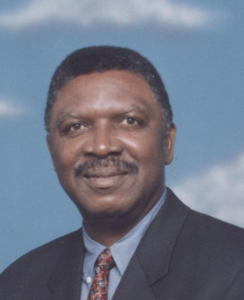 Graduate of Nigerian and Canadian Universities, Professor Gyuse holds four academic degrees including M.E. Des (Master of Environmental Design) with concentration in Urban Design and PhD in Environmental Planning with specialization in Housing. He has worked and taught at university levels in Canada, United States of America and Nigeria. He has researched and published extensively in the areas of housing, urban security. He is a registered town planner (RTP) and Fellow of the Nigeria Institute of Town Planners (FNITP). He is currently on staff of Nasarawa State University as Professor of Urban Design and Planning in the Faculty of Environmental Sciences.
Graduate of Nigerian and Canadian Universities, Professor Gyuse holds four academic degrees including M.E. Des (Master of Environmental Design) with concentration in Urban Design and PhD in Environmental Planning with specialization in Housing. He has worked and taught at university levels in Canada, United States of America and Nigeria. He has researched and published extensively in the areas of housing, urban security. He is a registered town planner (RTP) and Fellow of the Nigeria Institute of Town Planners (FNITP). He is currently on staff of Nasarawa State University as Professor of Urban Design and Planning in the Faculty of Environmental Sciences.
Dr. Taibat Lawanson (Department of Urban & Regional Planning, University of Lagos)
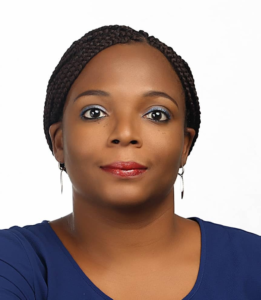 Dr Taibat Lawanson is Associate Professor of Urban Planning at the University of Lagos, Nigeria, where she leads the Pro-Poor Development Research Cluster and serves as Co-Director at the Centre for Housing and Sustainable Development. Her research focuses on the interface of social complexities, urban realities and the quest for environmental justice. She is particularly interested in how formal and informal urban systems synthesize in emerging African contexts.
Dr Taibat Lawanson is Associate Professor of Urban Planning at the University of Lagos, Nigeria, where she leads the Pro-Poor Development Research Cluster and serves as Co-Director at the Centre for Housing and Sustainable Development. Her research focuses on the interface of social complexities, urban realities and the quest for environmental justice. She is particularly interested in how formal and informal urban systems synthesize in emerging African contexts.
Oladayo Ramon Ibrahim, FeRSA (RSA Ambassador & Principal Lecturer, Lagos State Polytechnic)
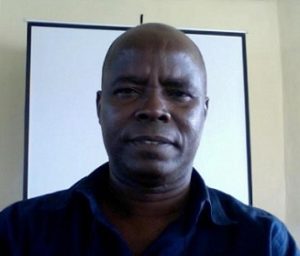 Oladayo is an academic with thematic research interests in Rural & Regional planning, Tourism development, urban development and Infrastructural development. He has written scholarly articles in his areas of academic interests in scholarly journals both locally and internationally. He authored a book titled ‘Tourism Planning and Development in Badagry, Lagos, Nigeria’ while two other books ‘An Introduction to Regional Planning’ and ‘An Introduction to Rural development planning’ are almost completed. He is a Fellow member and Country representative of Regional Studies Association (RSA) in Nigeria. He is also a member of the following learned associations: Regional Science Association International (RSAI), Association of American Geographer (AAG), a Fellow of Institute of Chartered Geographers of Nigeria (ICGN) and Nigerian Institute of Town Planners (NITP).
Oladayo is an academic with thematic research interests in Rural & Regional planning, Tourism development, urban development and Infrastructural development. He has written scholarly articles in his areas of academic interests in scholarly journals both locally and internationally. He authored a book titled ‘Tourism Planning and Development in Badagry, Lagos, Nigeria’ while two other books ‘An Introduction to Regional Planning’ and ‘An Introduction to Rural development planning’ are almost completed. He is a Fellow member and Country representative of Regional Studies Association (RSA) in Nigeria. He is also a member of the following learned associations: Regional Science Association International (RSAI), Association of American Geographer (AAG), a Fellow of Institute of Chartered Geographers of Nigeria (ICGN) and Nigerian Institute of Town Planners (NITP).
Associate Professor Valeria Lingua (RSA Ambassador in Italy) University of Florence, Department of Architecture, Regional Design Lab
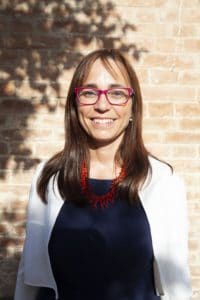 Valeria Lingua is Associate Professor on Urban and Regional Planning at the Department of Architecture of the University of Florence, where she acts as Scientific Director of the Regional Design Lab. She is RSA Ambassador for Italy and coordinator of the AESOP Thematic Group on Regional Design and has been an affiliate academic in prestigious Universities and research groups: Bartlett School of Planning, UCL (2014), Delft University of Technology (2016), Paris Sorbonne University (2018). She is a well-recognised academic on regional planning and design, governance rescaling and visioning. She conducts research activities and consultancies at EU, National and regional level concerning strategic spatial planning, sub-regional and inter-municipal planning, definition of river agreements.
Valeria Lingua is Associate Professor on Urban and Regional Planning at the Department of Architecture of the University of Florence, where she acts as Scientific Director of the Regional Design Lab. She is RSA Ambassador for Italy and coordinator of the AESOP Thematic Group on Regional Design and has been an affiliate academic in prestigious Universities and research groups: Bartlett School of Planning, UCL (2014), Delft University of Technology (2016), Paris Sorbonne University (2018). She is a well-recognised academic on regional planning and design, governance rescaling and visioning. She conducts research activities and consultancies at EU, National and regional level concerning strategic spatial planning, sub-regional and inter-municipal planning, definition of river agreements.
Olumide Olusola Metilelu (Ag. Rector, Lagos State Polytechnic, Lagos, Nigeria) – Closing Remark
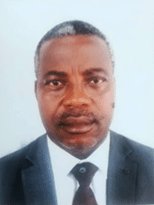
Metilelu Olumide is the Acting Rector of the Lagos State Polytechnic. He obtained a M.Sc. degree in International Hospitality and Tourism from the prestigious Bournemouth University, United Kingdom, a Master degree in Public Administration (Budgeting and planning) in 1999, Post graduate Diploma in Transport Studies in 1997 both from Olabisi Onabanjo University. At the Leads City University, he was awarded M.Sc. in Business Administration with option in Hospitality and Tourism Management. In addition, Metilelu holds a Bachelor’s degree in Economics from Ambrose Alli University Ekpoma and a Higher National Diploma in Hotel and Catering Management from the Lagos State Polytechnic. Read full bio.
Chair: Prof Immaculata Nwokoro (Department of Urban & Regional Planning, University of Lagos)
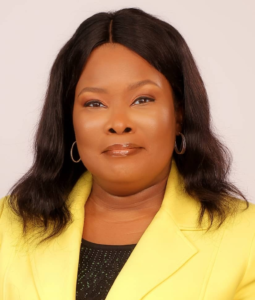
Immaculata Nwokoro, Professor of Urban and Regional Planning and Director, Centre for General Studies at the University of Lagos obtained her doctorate degree from the prestigious University of Ibadan, and was the first PhD graduate of the Department, having previously bagged a degree in Master of Urban and Regional Planning (MURP) from the same institution. She went on to obtain a Master’s degree in Geo-informatics from the University of Lagos. She is a first-class honors’ Bachelor of Technology graduate of Urban and Regional Planning from Rivers State University of Science and Technology, Port Harcourt. Her concerns for the state of the environment and its effect on the health of people informed her choice of career ab initio. Read full bio.
This session is organised by the RSA Nigerian Ambassadors Lookman Oshodi and Oladayo Ramon Ibrahim and in collaboration with the Nigerian Institute of Town Planners and the Lagos State Polytechnic, Lagos, Nigeria.
Speaker: Ivan Turok (South African NRF Research Chair in City-Region Economies, South Africa)
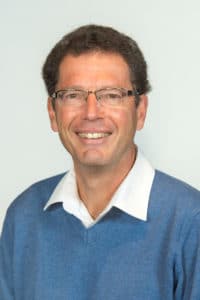 Prof Ivan Turok holds the NRF Research Chair in City-Region Economies in the Department of Economics and Finance and the Centre for Development Support at the UFS. He has authored more than 150 peer-reviewed publications and 11 books/monographs. He is the former Editor-in-Chief of Regional Studies, Executive Director at the Human Sciences Research Council and Chairman of the Durban City Planning Commission. He was formerly Professor of Urban Economic Development at the University of Glasgow. He is an occasional adviser to the United Nations, OECD, African Development Bank, UNECA, and several national governments. His recent books include Transitions in Regional Economic Development (2018, Routledge), Value Chains in Sub-Saharan Africa (2019, Springer), and Restoring the Core: Central City Decline and Transformation in the South (2020, Elsevier). He has a PhD in Economics from the University of Reading.
Prof Ivan Turok holds the NRF Research Chair in City-Region Economies in the Department of Economics and Finance and the Centre for Development Support at the UFS. He has authored more than 150 peer-reviewed publications and 11 books/monographs. He is the former Editor-in-Chief of Regional Studies, Executive Director at the Human Sciences Research Council and Chairman of the Durban City Planning Commission. He was formerly Professor of Urban Economic Development at the University of Glasgow. He is an occasional adviser to the United Nations, OECD, African Development Bank, UNECA, and several national governments. His recent books include Transitions in Regional Economic Development (2018, Routledge), Value Chains in Sub-Saharan Africa (2019, Springer), and Restoring the Core: Central City Decline and Transformation in the South (2020, Elsevier). He has a PhD in Economics from the University of Reading.
Chair: Professor Verna Nel (University of the Free State, South Africa)
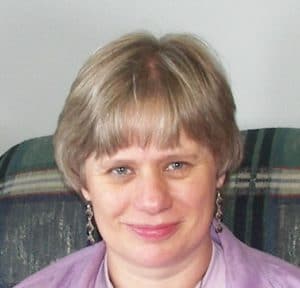 Verna Nel qualified as a town and regional planner at Wits University, and later obtained an MSc and a PhD through UNISA. She began her career at the Johannesburg Municipality and later worked in a private firm and national government before joining the Centurion Town Council. In 1998 she was appointed chief Town Planner at the municipality. She managed the City Planning function of the City of Tshwane from July 2001 to June 2008.
Verna Nel qualified as a town and regional planner at Wits University, and later obtained an MSc and a PhD through UNISA. She began her career at the Johannesburg Municipality and later worked in a private firm and national government before joining the Centurion Town Council. In 1998 she was appointed chief Town Planner at the municipality. She managed the City Planning function of the City of Tshwane from July 2001 to June 2008.
In 2009 Verna moved to the Urban and Regional Planning Department of the University of the Free State. She is an active researcher in addition to supervising Masters and doctoral students and teaching responsibilities. She has diverse research interests that include spatial and urban resilience and spatial governance. She was also part of the South African Planning Education Research Project. current research projects include taxi-oriented development, mining and communities and city-regional economies. She has presented her work at numerous international conferences and has published her research in leading journals as well as in books.
Verna also serves on the South African Council for Planners and is the chairperson of the Education and Training Committee.
This session is organised by the RSA South African Ambassador Ivan Turok. We would also like to thank our supporters the Faculty of Economic and Management Sciences Home/Centre for Development Support Home (University of the Free State, South Africa).
Latin America – Friday 13.11.2020
The Latin America sessions are organised by Sergio Montero (RSA Ambassador Colombia, and chair of the RSA Latin America Division), Miguel Atienza (RSA Ambassador Chile) and Pedro Amaral (RSA Ambassador Brazil).
Speaker: (Michael Storper, LSE, Sciences Po and UCLA)
 Michael Storper (PhD, Economic Geography, University of California, Berkeley), is an economic geographer who holds concurrent appointments at UCLA, the London School of Economics, and Sciences Po/Paris. Storper is the author of more than 100 peer-reviewed academic articles and 13 books, including the widely-cited The Regional World: Territory, Technology and Economic Development(Guilford), Worlds of Production (Harvard), and Keys to the City (Princeton University Press, 2013). His most recent book (2015) is entitled The Rise and Fall of Urban Economies: Lessons from Los Angeles and San Francisco (Stanford University Press). Storper publishes in journals in geography, sociology, urban studies, economics, and development studies. He received a Doctorate Honoris Causa from the University of Utrecht in 2008, the Sir Peter Hall Award from the Regional Studies Association in 2012, the Founder’s Gold Medal of the Royal Geographical Society in 2016, the Distinguished Scholarship Honors from the American Association of Geography in 2017. Storper is FBA (a member of the British Academy), and the Academy of Social Sciences. Thompson-Reuters named him “one of the world’s most influential scientific minds” in 2013. Storper is a frequent contributor to regional and urban policy-making for the European Union, the French government, and other international agencies. He holds dual French-American citizenship and is a fluent speaker of English, French and Portuguese.
Michael Storper (PhD, Economic Geography, University of California, Berkeley), is an economic geographer who holds concurrent appointments at UCLA, the London School of Economics, and Sciences Po/Paris. Storper is the author of more than 100 peer-reviewed academic articles and 13 books, including the widely-cited The Regional World: Territory, Technology and Economic Development(Guilford), Worlds of Production (Harvard), and Keys to the City (Princeton University Press, 2013). His most recent book (2015) is entitled The Rise and Fall of Urban Economies: Lessons from Los Angeles and San Francisco (Stanford University Press). Storper publishes in journals in geography, sociology, urban studies, economics, and development studies. He received a Doctorate Honoris Causa from the University of Utrecht in 2008, the Sir Peter Hall Award from the Regional Studies Association in 2012, the Founder’s Gold Medal of the Royal Geographical Society in 2016, the Distinguished Scholarship Honors from the American Association of Geography in 2017. Storper is FBA (a member of the British Academy), and the Academy of Social Sciences. Thompson-Reuters named him “one of the world’s most influential scientific minds” in 2013. Storper is a frequent contributor to regional and urban policy-making for the European Union, the French government, and other international agencies. He holds dual French-American citizenship and is a fluent speaker of English, French and Portuguese.
Chair: Sergio Montero (CIDER, Colombia)
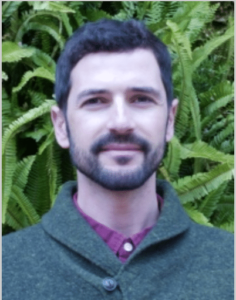 Sergio Montero is Associate Professor of Urban and Regional Development at the Universidad de Los Andes in Bogotá, Colombia. He is based at CIDER, an interdisciplinary research center for development studies. His interests are in the politics and governance of urban and regional planning; the local and global dynamics behind the circulation, learning and adoption of urban policy models; and local and regional economic development strategies, with an emphasis in Latin American cities and regions. Sergio has published in internationally recognized journals in urban and Latin American studies such as Environment and Planning A, Urban Studies, the International Journal of Urban and Regional Research and Latin American Perspectives. He received the Regional Studies Association/Routledge Early Career Award for his co-edited book “Fragile Governance and Local Economic Development: Theory and Evidence from Peripheral Regions in Latin America” (Routledge 2018, with Karen Chapple). Sergio holds a BA in Economics from Universidad de Granada (Spain) and a master and PhD in City and Regional Planning from the University of California, Berkeley.
Sergio Montero is Associate Professor of Urban and Regional Development at the Universidad de Los Andes in Bogotá, Colombia. He is based at CIDER, an interdisciplinary research center for development studies. His interests are in the politics and governance of urban and regional planning; the local and global dynamics behind the circulation, learning and adoption of urban policy models; and local and regional economic development strategies, with an emphasis in Latin American cities and regions. Sergio has published in internationally recognized journals in urban and Latin American studies such as Environment and Planning A, Urban Studies, the International Journal of Urban and Regional Research and Latin American Perspectives. He received the Regional Studies Association/Routledge Early Career Award for his co-edited book “Fragile Governance and Local Economic Development: Theory and Evidence from Peripheral Regions in Latin America” (Routledge 2018, with Karen Chapple). Sergio holds a BA in Economics from Universidad de Granada (Spain) and a master and PhD in City and Regional Planning from the University of California, Berkeley.
Panellists:
Alejandra Trejo (El Colegio de Mexico, Mexico)
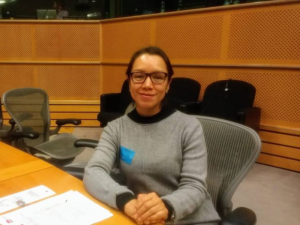 Alejandra Trejo is an economist, holds a Master degree in Regional Economics and a PhD in Development Studies. She is currently a professor at the Center for Demographic, Urban and Environmental Studies, El Colegio de Mexico in Mexico City. She is an ambassador to Mexico of the Regional Studies Association, and a UKRI International Development peer review college member. Her research agenda reflects significant interdisciplinary concerns about the issues of urbanization, urban and regional economic development, governance and policy.
Alejandra Trejo is an economist, holds a Master degree in Regional Economics and a PhD in Development Studies. She is currently a professor at the Center for Demographic, Urban and Environmental Studies, El Colegio de Mexico in Mexico City. She is an ambassador to Mexico of the Regional Studies Association, and a UKRI International Development peer review college member. Her research agenda reflects significant interdisciplinary concerns about the issues of urbanization, urban and regional economic development, governance and policy.
Sergio Montero (CIDER, Colombia)
 Sergio Montero is Associate Professor of Urban and Regional Development at the Universidad de Los Andes in Bogotá, Colombia. He is based at CIDER, an interdisciplinary research center for development studies. His interests are in the politics and governance of urban and regional planning; the local and global dynamics behind the circulation, learning and adoption of urban policy models; and local and regional economic development strategies, with an emphasis in Latin American cities and regions. Sergio has published in internationally recognized journals in urban and Latin American studies such as Environment and Planning A, Urban Studies, the International Journal of Urban and Regional Research and Latin American Perspectives. He received the Regional Studies Association/Routledge Early Career Award for his co-edited book “Fragile Governance and Local Economic Development: Theory and Evidence from Peripheral Regions in Latin America” (Routledge 2018, with Karen Chapple). Sergio holds a BA in Economics from Universidad de Granada (Spain) and a master and PhD in City and Regional Planning from the University of California, Berkeley.
Sergio Montero is Associate Professor of Urban and Regional Development at the Universidad de Los Andes in Bogotá, Colombia. He is based at CIDER, an interdisciplinary research center for development studies. His interests are in the politics and governance of urban and regional planning; the local and global dynamics behind the circulation, learning and adoption of urban policy models; and local and regional economic development strategies, with an emphasis in Latin American cities and regions. Sergio has published in internationally recognized journals in urban and Latin American studies such as Environment and Planning A, Urban Studies, the International Journal of Urban and Regional Research and Latin American Perspectives. He received the Regional Studies Association/Routledge Early Career Award for his co-edited book “Fragile Governance and Local Economic Development: Theory and Evidence from Peripheral Regions in Latin America” (Routledge 2018, with Karen Chapple). Sergio holds a BA in Economics from Universidad de Granada (Spain) and a master and PhD in City and Regional Planning from the University of California, Berkeley.
Carla Daniela Calá (Universidad Nacional de Mar del Plata, Argentina)
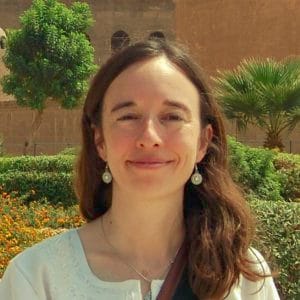 Carla Daniela Calá is currently a full-professor in International Economics and member of the Industrial Economics Research Group at Universidad Nacional de Mar del Plata, Argentina. She has a Bachelor Degree in Economics (Universidad Nacional de Mar del Plata), Master Degree in Economics and Industrial Development (Universidad Nacional de General Sarmiento, Argentina), Master in Industrial Organization (Universitat Rovira i Virgili, Spain) and PhD in Economics (Universitat Rovira i Virgili). Her research interests are related to the evolution of regional productive structures in developing countries, in terms of firm dynamics, local productive patterns, regional specialization, productive diversification and economic resilience.
Carla Daniela Calá is currently a full-professor in International Economics and member of the Industrial Economics Research Group at Universidad Nacional de Mar del Plata, Argentina. She has a Bachelor Degree in Economics (Universidad Nacional de Mar del Plata), Master Degree in Economics and Industrial Development (Universidad Nacional de General Sarmiento, Argentina), Master in Industrial Organization (Universitat Rovira i Virgili, Spain) and PhD in Economics (Universitat Rovira i Virgili). Her research interests are related to the evolution of regional productive structures in developing countries, in terms of firm dynamics, local productive patterns, regional specialization, productive diversification and economic resilience.
Chair: Pedro Amaral (CEDEPLAR – Universidade Federal de Minas Gerais, Brazil)
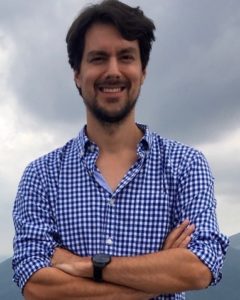 Tenured professor at the Department of Economics and the Center for Regional Development and Planning (Cedeplar) at Universidade Federal de Minas Gerais, Brazil, and Fellow of the Center for Spatial Data Science, University of Chicago, USA. Ph.D degree in Land Economy from the University of Cambridge and co-editor of the journals Spatial Economic Analysis (since 2014), Journal of Spatial Econometrics (since 2019), and Regional Studies, Regional Science (since 2013). Ambassador for Regional Studies Association in Brazil (since 2017) and productivity fellowship awardee from the Brazilian Research Council CNPq (since 2017). Primary research field is spatial economics, working mainly with health equity and regional disparities.
Tenured professor at the Department of Economics and the Center for Regional Development and Planning (Cedeplar) at Universidade Federal de Minas Gerais, Brazil, and Fellow of the Center for Spatial Data Science, University of Chicago, USA. Ph.D degree in Land Economy from the University of Cambridge and co-editor of the journals Spatial Economic Analysis (since 2014), Journal of Spatial Econometrics (since 2019), and Regional Studies, Regional Science (since 2013). Ambassador for Regional Studies Association in Brazil (since 2017) and productivity fellowship awardee from the Brazilian Research Council CNPq (since 2017). Primary research field is spatial economics, working mainly with health equity and regional disparities.
Speakers:
Miguel Atienza Ubeda (Universidad Católica del Norte, Chile)
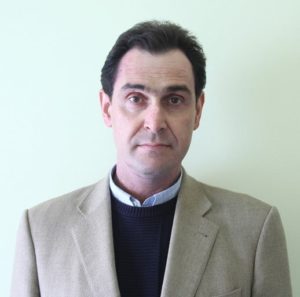 Miguel Atienza Ubeda holds a Ph.D in Economics from Universidad Autónoma de Madrid (Spain) and MPhil in Development Studies at the Institute of Development Studies (IDS) at the University of Sussex (UK). He is professor of regional and urban economics at the Economics Department and Business Faculty of the Universidad Católica del Norte in Antofagasta (Chile). His main areas of research are the formation and evolution of spatial agglomerations, mining and regional development and entrepreneurship and labour interregional mobility. Currently he is the Chilean ambassador of the Regional Studies Association.
Miguel Atienza Ubeda holds a Ph.D in Economics from Universidad Autónoma de Madrid (Spain) and MPhil in Development Studies at the Institute of Development Studies (IDS) at the University of Sussex (UK). He is professor of regional and urban economics at the Economics Department and Business Faculty of the Universidad Católica del Norte in Antofagasta (Chile). His main areas of research are the formation and evolution of spatial agglomerations, mining and regional development and entrepreneurship and labour interregional mobility. Currently he is the Chilean ambassador of the Regional Studies Association.
Alejandra Trejo (El Colegio de Mexico, Mexico)
 Alejandra Trejo is an economist, holds a Master degree in Regional Economics and a PhD in Development Studies. She is currently a professor at the Center for Demographic, Urban and Environmental Studies, El Colegio de Mexico in Mexico City. She is an ambassador to Mexico of the Regional Studies Association, and a UKRI International Development peer review college member. Her research agenda reflects significant interdisciplinary concerns about the issues of urbanization, urban and regional economic development, governance and policy.
Alejandra Trejo is an economist, holds a Master degree in Regional Economics and a PhD in Development Studies. She is currently a professor at the Center for Demographic, Urban and Environmental Studies, El Colegio de Mexico in Mexico City. She is an ambassador to Mexico of the Regional Studies Association, and a UKRI International Development peer review college member. Her research agenda reflects significant interdisciplinary concerns about the issues of urbanization, urban and regional economic development, governance and policy.
Chair: Daniela Carl (Regional Studies Association, UK)
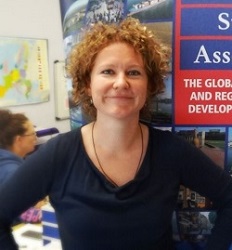 Daniela is the Deputy Chief Executive of the Regional Studies Association.
Daniela is the Deputy Chief Executive of the Regional Studies Association.
North America – Monday 16.11.2020
The sessions for North America will run during the following times:
| Time Zone | Time | UTC +/- |
| Eastern Standard Time (EST) | 11.00 – 14.00 | UTC -5 |
| Central Standard Time (CST) | 10.00 – 13.00 | UTC -6 |
| Pacific Standard Time (PST) | 08.00 – 11.00 | UTC -8 |
| Mountain Standard Time (MST) | 09.00 – 12.00 | UTC -7 |
| Alaska Standard Time (AKST) | 07.00 – 10.00 | UTC -9 |
| Hawaii Standard Time (HST) | 06.00 – 09.00 | UTC -10 |
| Atlantic Standard Time (AST) | 12.00 – 15.00 | UTC -4 |
| Newfoundland Standard Time (NST) | 12.30 – 15.30 | UTC -3.30 |
| Greenwich Mean Time (GMT) | 16.00 – 19.00 | UTC +0 |
All sessions will run consecutively and you are welcome to stay as long or short as you wish. You will only need to register for free once and can drop in and out of the sessions.
These sessions are organised by RSA Research Network Holder Michael Glass (University of Pittsburgh, USA)
Speaker: Professor Michael Samers, University of Kentucky, USA
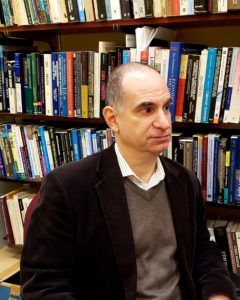
Michael Samers (D.Phil., Oxford University, 1997) is Professor of Geography at the University of Kentucky, having previously held positions at the Universities of Liverpool and Nottingham. His research interests span the political-economic, urban/regional, and labor market dimensions of migration and immigration, as well as international finance and the consequences of artificial intelligence and robotics for employment. He is co-author (with Noel Castree, Neil Coe, and Kevin Ward) of Spaces of Capitalism: Globalization and the Geographies of Labour (Sage, 2004), author of Migration (Routledge, 2010, and translated into Italian and Korean, respectively in 2012 and 2014), co-author with Michael Collyer of Migration, 2nd edition (Routledge, 2017), and numerous articles and book chapters on the subject of migration, immigration, political economy, cities, labor markets, and financial geographies, principally in Europe (especially France) and the United States. He has also served as Co-editor of Geoforum (2006-2012), and held a Fulbright research fellowship at CERAPS, Université de Lille II in 2013-2014.
Chair: Dr Michael Glass, University of Pittsburgh, USA
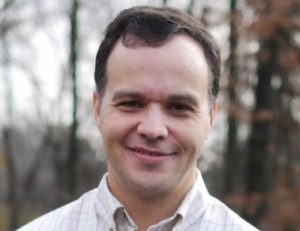
Dr. Michael Glass is an urbanist who works at the intersection of geography and planning. His primary research is on city-region governance and planning, housing, and urban infrastructure; he has regional expertise in Southeast Asia, North America, and Australasia. He is the co-editor of Performativity, Politics, and the Production of Social Space (Routledge, 2014) and co-author of Priced Out: Stuyvesant Town and the Loss of Middle-Class Neighborhoods (NYU Press, 2016). His most recent research examines the ways that infrastructure shapes regions and influences regional equity. He has published extensively in leading international journals and is on the editorial boards of Asian Geography Journal and Regional Studies, Regional Science. Winner of the 2015 Bellet Award for Teaching Excellence, Dr. Glass is the Director of Undergraduate Studies and teaches courses for Urban Studies including: U.S. Housing and Property and Introduction to Urban Studies.
Panellists:
Professor Josiah Heyman, University of Texas El Paso, USA
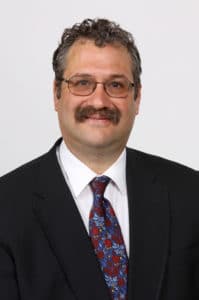
Josiah Heyman (Ph.D., CUNY 1988) is Professor of Anthropology, Endowed Professor of Border Trade Issues, and Director of UTEP’s Center for Interamerican and Border Studies. He is the editor of the influential States and Illegal Practices (Oxford: Berg, 1999), and co-editor of Paper Trails: Migrants, Documents, and Legal Insecurity (Durham: Duke University Press) and The U.S.-Mexico Transborder Region: Cultural Dynamics and Historical Interactions (Tucson: University of Arizona Press), and the author of Finding a Moral Heart for U.S. Immigration Policy: An Anthropological Perspective (Arlington, VA: American Anthropological Association, 1998) and Life and Labor on the Border: Working People of Northeastern Sonora, Mexico, 1886-1986 (Tucson: University of Arizona Press, 1991). He is also author of more than one hundred and forty scholarly articles, book chapters, and essays.
Presentation title: Borders in Two Perspectives: Long-Distance Flows and Interdiction, and Uneven and Combined Regions
Dr Yolande Pottie-Sherman, Memorial University of Newfoundland, Canada
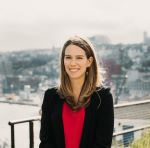
Dr. Yolande Pottie-Sherman is an Assistant Professor in Geography at Memorial University of Newfoundland and co-lead of the Adaptive Cities & Engagement (ACE) Space, a research lab promoting social justice and inclusivity in small cities. She is an urban and political geographer who writes primarily about human migration.
Her research interests include the political economy of migration, urban change, and local immigration activism – particularly in the American Rust Belt and Atlantic Canada. Currently, she is working on a SSHRC funded project entitled, “Immigration, urban change, the contemporary Rust Belt,” and researching present-day community-relocation movements in Newfoundland and Labrador and beyond for a project on “Resettlement in Global Context” with Dr. Isabelle Côté.
She is particularly interested in supervising students working in the areas of human migration, especially on the topics of community relocation and population resettlement; local immigration policies and practices; and anti-immigrant attitudes. Current advisees are studying immigrant entrepreneurship and regional governance in Newfoundland and Labrador.
Chair: Professor Michael Goodhart, University of Pittsburgh, USA
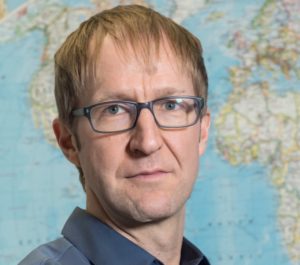
Michael Goodhart is Professor of Political Science, and he holds secondary appointments in Philosophy and in Gender, Sexuality, and Women’s Studies. He is Director of the Global Studies Center at Pitt and a University Honors College Faculty Fellow. His current research focuses on questions to do with global injustice and responsibility for injustice and in the ways in which political theorists think about these problems. He is also interested in human rights praxis as a form of counter-hegemonic politics under neoliberalism. His core intellectual interests are in the theory and practice of democracy and human rights in the context of globalization and in related questions concerning global justice, democratic governance, and political responsibility at the transnational level.
Dr. Goodhart is author of Injustice: Political Theory for the Real World (Oxford 2018), Democracy as Human Rights: Freedom and Equality in the Age of Globalization (Routledge, 2005), contributing editor of Human Rights: Politics and Practice (Oxford University Press, 2009, 2012, 2016), and contributing co-editor of Social Movements and World-System Transformation (Routledge 2017) and Human Rights in the 21st Century: Continuity and Change since 9/11 (Palgrave, 2011). He is also author of numerous articles and book chapters. Dr. Goodhart is co-president of the Association for Political Theory; he is an affiliate of the Human Rights Institute at the University of Connecticut, a member of the Center for Ethics and Policy at Carnegie Mellon University, and sits on several editorial boards. In 2008-2009 he was an Alexander von Humboldt Foundation research fellow and Guest Professor in the Hertie School of Governance, Berlin.
Speaker: Professor Jennifer Clark, The Ohio State University, USA
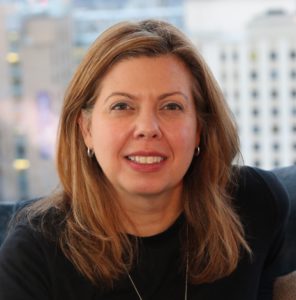
Jennifer Clark is Professor and Head of the City and Regional Planning Section at the Knowlton School of Architecture in the College of Engineering at The Ohio State University.
Dr. Clark is a Fellow of the American Association of Geographers (AAG) and a Fellow of the Regional Studies Association (RSA). She is the Deputy Editor-in-Chief of the journal, Regional Studies and recently served as the Chair of the Economic Geography Specialty Group (EGSG) of the AAG (2017-2019). Dr. Clark earned her Ph.D. from Cornell University, a Master’s degree from the Humphrey School of Public Affairs at the University of Minnesota, and a B.A. from Wesleyan University.
Dr. Clark’s most recent book: Uneven Innovation: The Work of Smart Cities (2020) is forthcoming from Columbia University Press. Her other books include: Working Regions: Reconnecting Innovation and Production in the Knowledge Economy (2013), Remaking Regional Economies: Power, Labor, and Firm Strategies in the Knowledge Economy (2007) w/ Susan Christopherson, winner of the Best Book Award from the Regional Studies Association in 2009, and the 3rd edition of Basic Methods of Policy Analysis and Planning (2012) w/ Carl Patton and David Sawicki, a widely adopted text in public policy and urban and regional planning courses. She is also co-editor of the Handbook of Manufacturing Industries in the World Economy (2015) and Transitions in Regional Economic Development (2018). In addition, she has written numerous articles and book chapters.
Dr. Clark researches and teaches courses on urban and regional economic development theory, analysis, and practice as well as research design and methods. She has provided expert testimony before the US Congress and policy advice and consulting to the Organization for Economic Cooperation and Development (OECD) and the Canadian, UK, and US governments. Before joining the Knowlton School, Dr. Clark taught at Cornell University and the Georgia Institute of Technology where she was also the Director of the Center for Urban Innovation.
Speaker/Chair: Professor Terry Clower, George Mason University, USA
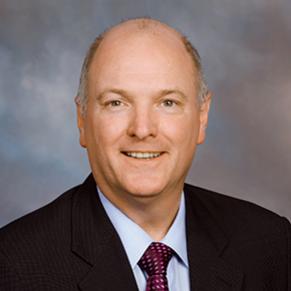
Terry L. Clower is Northern Virginia Chair and Professor of Public Policy at George Mason University. He is also director of GMU’s Center for Regional Analysis. The Center provides economic and public policy research services to sponsors in the private, non-profit and public sectors. Prior to joining GMU, he was director for the Center for Economic Development and Research at the University of North Texas. Dr. Clower also spent 10 years employed in private industry in logistics and transportation management positions.
Dr. Clower has authored or co-authored over 150 articles, book chapters, and research reports reflecting experience in economic and community development, economic and fiscal impact analysis, transportation, land use planning, housing, and economic forecasting. His scholarly articles have appeared in Economic Development Quarterly; Urban Studies; Economic Development Review; Regional Studies, Regional Science; the Australasian Journal of Regional Studies; Regional Studies Regional Science, Sustaining Regions; and Applied Research in Economic Development. He recently completed a term as regional (Americas) editor for the journal Regional Science Policy and Practice.
Dr. Clower received a B.S. in Marine Transportation from Texas A&M University in 1982, a M.S. in Applied Economics from the University of North Texas in 1992 and a Ph.D. in Information Sciences from the University of North Texas in 1997 specializing in information policy issues and the use of information resources.
Supporters
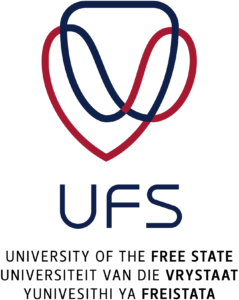 The Centre for Development Support (CDS) is a progressive research and development unit within the Faculty of Economic and Management Sciences at the University of the Free State (UFS) with the broad aim of promoting sustainable human development in the broader South African society. In addition to this, the CDS also presents a two-year multi-disciplinary Master’s Programme in Development Studies (MDS) with lecturers from sixteen departments at the UFS, by means of resource-based learning. This degree is designed for people who are currently working in a development-related context, or who intend to do so.
The Centre for Development Support (CDS) is a progressive research and development unit within the Faculty of Economic and Management Sciences at the University of the Free State (UFS) with the broad aim of promoting sustainable human development in the broader South African society. In addition to this, the CDS also presents a two-year multi-disciplinary Master’s Programme in Development Studies (MDS) with lecturers from sixteen departments at the UFS, by means of resource-based learning. This degree is designed for people who are currently working in a development-related context, or who intend to do so.
Chair City-Region Economies
Cities are potential platforms for progress because they make people and firms more productive. Agglomeration creates positive value and facilitates learning and creativity. It also generates efficiencies for public infrastructure and essential services. Yet urbanisation of the population does not automatically lead to rising prosperity or inclusion, especially if it accompanied by congestion, social instability, public health risks or inflated property prices. The research seeks to understand the determinants of urban economic success and the obstacles faced in order to improve policy and practice – for government, the private sector and civil society. The intention is to analyse the factors and forces that drive economic development across the urban system, and that help and hinder urbanisation contributing to economic and social development.
![]() Routledge is the world’s leading research publisher in the Humanities and Social Sciences. We publish thousands of scholarly journals, research books, student textbooks and reference works each year, partnering with scholars, instructors, and professional communities worldwide. Routledge is proud to publish the Regional Studies Association’s portfolio of journals and the Regions and Cities book series.
Routledge is the world’s leading research publisher in the Humanities and Social Sciences. We publish thousands of scholarly journals, research books, student textbooks and reference works each year, partnering with scholars, instructors, and professional communities worldwide. Routledge is proud to publish the Regional Studies Association’s portfolio of journals and the Regions and Cities book series.
